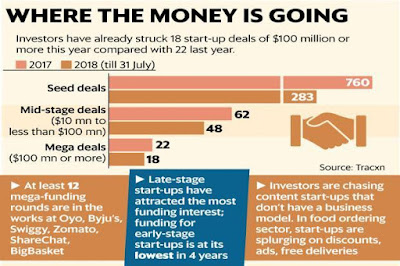What awaits blockchain startups?
While the cryptocommunity is busy worrying over the cryptocurrency market crash and another Bitcoin price drop, the ICO market … keeps growing.
From Medium by Alex Stargame August 21, 2018In total, the ICOs of 2018 have already attracted about $11,7 billion of investment, which is 10 times more than the funds raised by ICOs for the first half of 2017.
Jeffrey Tucker, the editorial director of the American Institute for Economic Research, considers that, despite the considerable number of unsuccessful projects, the ICO market is fine:
“It does not look like a dead market to me. It’s true, half of new ICOs could not collect more than $100 thousand in the second quarter. But it speaks about the decrease in the quality of listings. For those who observed this sector for several years, there is nothing surprising in it. The market with no entry barriers will attract … well, practically everybody”, — Jeffrey Tucker states.
The appearance of a considerable quantity of insitutional investors is a distinctive feature of the ICO market in 2018. In 2018, the first national cryptocurrency has been launched and large companies have started to invest in blockchain projects.
The number of projects raising funds through an ICO has increased by 11 %, however, less than half of them have managed to conduct a successful crowdfunding campaign.
In comparison with the ICO boom of 2017, the average duration of a crowdfunding campaign has grown and now equals approximately 63 days. Only three projects in 2018 managed to finish their campaigns within one day.
Actually, now many analysts look at the ICO market much more optimistically than even three months ago. At the beginning of the year investors became much more cautious investing in ICOs, and even three months ago it was possible for projects to attract investments only through private token sales (according to ICOrating, the average number of investors per token in 2018 is only 7,871).
Despite the toughening of requirements for ICOs, more than half of startups are still launched in North America. The second place is taken by Singapore, then Great Britain and Switzerland. This, despite the growth of interest to cryptocurrencies in developing countries like Venezuela and Turkey.
Jeffrey Tucker thinks that the investors’ pessimism is connected with the fact that the community, which developed in 2017, has got used to gaining fast and big profits from ICO projects. But the market of venture investments does not work so quickly. And it is O.K. if a project does not bring profit during the first half of the year.
A curious tendency — 2018 has become a boom for games on blockchain. I don’t mean only the traditional “collection” projects like CryptoKitties, but also indie- and video games, where developers have started to introduce blockchain technologies. Let alone a considerable quantity of game platforms and casinos on blockchain.
As computer games are one of the most rapidly developing and promising spheres, we can hope for a new boom of blockchain startups and the growth of investors’ interest to ICOs.
Source: https://cryptocurrencyhub.io/what-awaits-blockchain-startups-b242295aa42d






